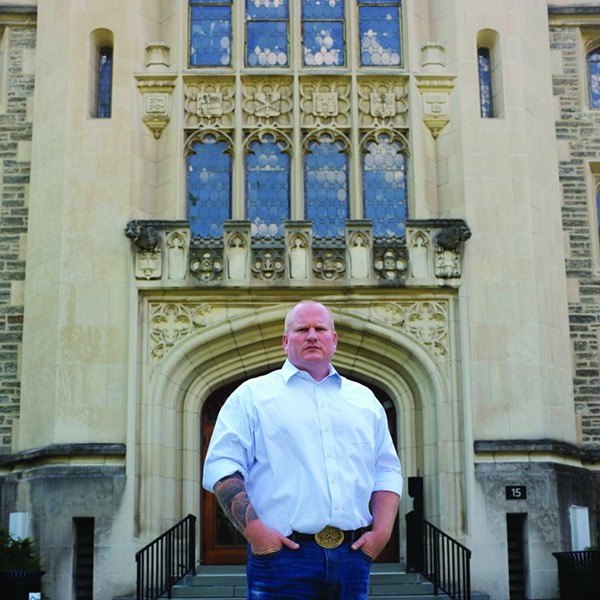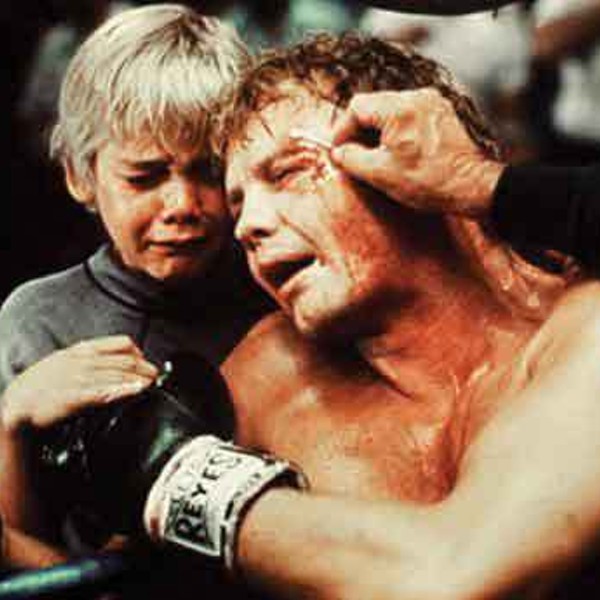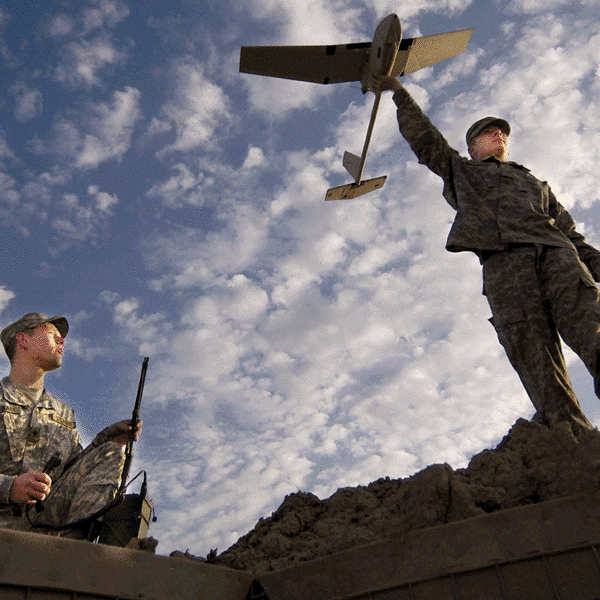Our driver’s favored detour empties us out onto the main drag of Sa’adoon Street, where entire blocks of storefront glass lie shattered on the ground. In our hotel, the floor-to-ceiling glass wall of the first-floor restaurant is gone, as is another window in the ground-floor lobby. A chilly stream of air makes its way up the stairs and through the halls, and it is hard to tell whether the internationals huddled around the TV in the lobby are cold or simply holding themselves for comfort. Most are Americans, journalists of the progressive persuasion. The hotel is cheap and clean, and word of the availability of Internet in the privacy of individual rooms has made it the place to stay for many. This is the week of the one-year anniversary of America’s war against Iraq, and delegations of these folks have flooded the hotel “to get the story”—their mere presence a glaring invitation for such an attack.
Anna, Nathan, and I—we set out together on this journey to Iraq six weeks earlier—walk the short distance to the site of the bombing, the Mount Lebanon Hotel. Soldiers and military vehicles block entry to the street, and we are told to wait for the commander to come out to brief us. Standing in a lot full of fresh trash and running sludge, we don’t speak.
A Humvee crashes slowly over the largest heap and parks itself next to a tank. Reporters swarm—cameras flash, vans unload, mikes are thrust to people’s mouths—in frantic action among a few Iraqis who have gathered. “They are beasts,” says an Iraqi translator, Rania, of the press. I have not seen her for weeks and she is now working with a German reporter. He comes close, they speak in whispers, and he scurries off. Disgust clouds her face, and we watch the scene together for a moment. “They have come to feed.”
A young Iraqi man on crutches makes his way through the scene. He is pointing to the sky and saying, “Apaches. Apaches.” He claims that the Americans fired a missile at the hotel. The soldiers take him aside and tell him to stop trying to incite a riot. He saunters off to join his friends, of high school or college age, smiling as if he has pulled off some great prank. An Iraqi man walks up to the tank and says he lives on this street—something about his family’s being down there, he points, where he is not being allowed to go. The press catch his scent, and he is immediately surrounded. Flashes pop, mikes are outstretched... When a few photographers use the tank to raise themselves up in order to “get the shot,” the soldier in the turret lifts his machine gun and points it to the air. “OK, get back now! Get back!” he shouts. The herd stampedes past me and Anna and almost knocks us down.
I say hello to a young British woman I met last February in Baghdad and had not seen since; she is here as a human shield. She has long brown dreadlocks and several earrings in one ear. “We would never harm such a person who looks like this,” an Iraqi woman whispers in my ear. “Iraqi people can see how much she is hurting.” A crowd of young Iraqi men gathers around the young woman, and there is some sort of exchange I cannot hear. Suddenly she begins to shout at the nearby soldiers, who look no more than children in uniforms carrying large weapons: “How could you know?! You don’t know what it is like! There were no Americans killed tonight! No Americans! You don’t know what these people have been through!!”
“No Americans were killed, huh?” says one soldier. “Yeah, right. OK, no Americans were killed. Yeah, you know what you’re talking about.”
Another soldier begins talking to no one in particular. “I have to wash the blood off my hands.” I look down and see surgical gloves cover his hands.
“How did you get blood on your hands?”
“I was the first one on the scene. Got here before the troops. I started working on two people right away—Americans. We Medivaced them out. Pretty bad shape. We work fast. While I was working, my guys brought others to me. Some could walk and others had to be carried. I was the first to get to the restaurant bombing too. This always happens on the holidays. I don’t want to be here for Easter.”






















